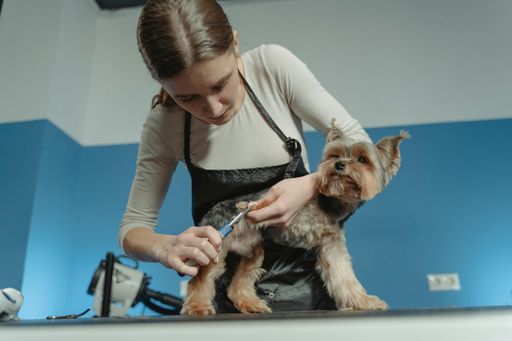Facebook users need to be on-guard for missing dog scams. Fake posts seemingly raising awareness about missing or injured dogs are being shared by well-intentioned people, only for the post to then be edited to include deceptive or fraudulent links trying to steal money or personal information. Although it’s difficult to know how many people have fallen prey to this scam, Americans lost $2.7 billion to social media scams of all kinds between 2021-2023 alone. By taking smart steps to verify missing dog ads before sharing, you can avoid being targeted and steer clear of scams.
Understanding how lost dog scams work
Although this scam has many iterations, they all begin the same way: you see a missing dog poster on Facebook, and share it to your own profile in order to spread awareness across your friend group. Yet, once you’ve shared it, the scammer can then edit the post to include something like a link to a survey promising rewards or cash prizes — yet, in reality, it’s really an attempt to harvest your personal data and steal your identity. Or, the missing dog poster could change to a fraudulent property listing, which is trying to get you to pay a deposit before viewing in-person. These are some of the most common social media and tech scams designed to trick unsuspecting and good-hearted dog-lovers out of their money. Either way, your friends now think you’re endorsing these scammy posts. The fraudster is relying on you not going back and looking at the content again, and therefore not realizing the edit. Each version of this scam is designed to pull on your heart strings and/or carries an underlying sense of urgency, pushing you to share the content immediately. That’s why it’s essential to resist the urge to share immediately, and vet the post first. Also, prioritize sharing lost dog posters from reputable organizations like the ASPCA, PetHub, and Lost Dogs of America. This way, you can help reunite genuinely lost fur babies with their owners, while also ensuring you and your friend network avoid scams.
How to verify lost dog ads and avoid scams
To check whether a lost dog ad is legit, start by looking at the replies on the post. Scammers like to disable comments, preventing people from calling out the scam. So, if replies have been turned off, you’re likely dealing with a fake — after all, if someone’s trying to raise awareness around a lost dog, why would they restrict communication this way? Also, check when the OP’s profile was created. A new profile can be a red flag as scammers have a pattern of making fresh ones each time they get banned. Having no other content aside from the missing dog ad should also put you on high-alert as this means the page has likely been launched for the purpose of scamming. Also, check the poster’s location. For example, if their profile says they’re from Wisconsin, but they’ve shared the ad in a San Francisco buy-and-sell group, it’s another indicator of a scam. It’s also important to be particularly on-guard for these pet scams when visiting local buy-and-sell Facebook groups as they’re particularly prevalent on these pages. Scammers attempt to take advantage of the existing trust and solidarity shared between members here.
You can also reverse image search the dog photo in the ad. This is a simple way to see if the photo’s being used elsewhere on the net — like on a similar ad in a different city, for example. To use Google’s reverse image search function, for instance, all you need to do is click the camera icon next to the Google search bar. Then, either drag, paste the image URL, or upload the image in question. You’ll then get to see the origin of the photo. Another way to find out if a similar yet different version of the lost dog ad exists elsewhere is to simply copy and paste the text within the ad into Google or Facebook’s search bar. It may turn out different variations of the same text have been used by scammers in a variety of past scams. And, if your conclusions do lead you to believing the post is fraudulent, don’t share it and report it to Facebook right away.
Facebook dog scams are unfortunately increasingly widespread, aiming to steal money or personal data. By taking smart steps to verify missing dog ads before sharing, you can successfully steer clear of scammers.



















